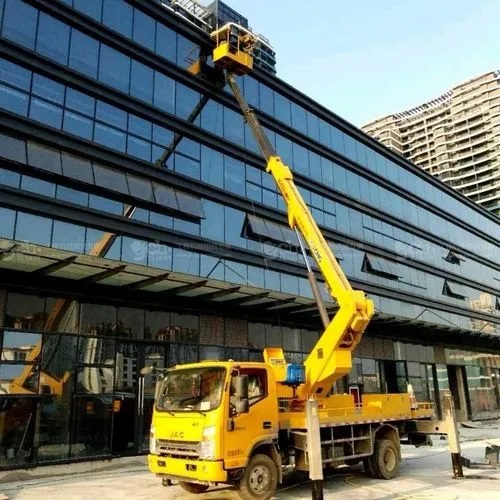The Essential Role of Garbage Compactor Trucks in Managing Waste at Large Events
Introduction Large events, such as music festivals, sporting events, and community gatherings, attract thousands of people and generate a significant amount of waste. In order to maintain cleanliness and ensure environmental sustainability, effective waste management is crucial. Garbage compactor trucks play a vital role in managing waste at large events by collecting, compacting, and transporting garbage efficiently. This article explores the importance of garbage compactor trucks in handling waste at large events, their benefits, and the challenges they face. Importance of Garbage Compactor Trucks at Large Events Large events often result in a high volume of waste, including food packaging, beverage containers, paper products, and other disposable items. Without proper waste management systems in place, these events can quickly become littered and unsanitary. Garbage compactor trucks are essential for maintaining cleanliness and hygiene by collecting and removing waste in a timely manner. One of the primary benefits of garbage compactor trucks is their efficiency in compacting waste. These specialized vehicles are equipped with compactors that compress garbage, reducing its volume and maximizing the amount of waste that can be transported in each trip. This not only saves time and labor but also minimizes the number of trips needed to transport the waste to disposal facilities. In addition to their efficiency, garbage compactor trucks are designed to handle a wide range of waste materials, including both solid and liquid waste. This versatility makes them well-suited for collecting various types of waste generated at large events, from food scraps and packaging to plastic bottles and other recyclables. By consolidating different types of waste into a single collection vehicle, garbage compactor trucks help streamline the waste management process and reduce the environmental impact of the event. Furthermore, garbage compactor trucks play a crucial role in promoting sustainability at large events. By compacting waste and maximizing the capacity of each load, these vehicles reduce the number of trips required to transport the waste to disposal facilities. This not only saves fuel and reduces carbon emissions but also lowers the overall cost of waste management for event organizers. Benefits of Garbage Compactor Trucks 1. Efficiency: Garbage compactor trucks are highly efficient in collecting and compacting waste, allowing for more waste to be transported in each trip. 2. Versatility: These vehicles can handle a wide range of waste materials, making them suitable for collecting different types of waste generated at large events. 3. Sustainability: By reducing the number of trips needed to transport waste, garbage compactor trucks promote sustainability by saving fuel and reducing carbon emissions. 4. work truck for sale -effective: The efficient operation of garbage compactor trucks helps lower the overall cost of waste management for event organizers. Challenges Faced by Garbage Compactor Trucks While garbage compactor trucks offer numerous benefits in managing waste at large events, they also face several challenges that can impact their effectiveness. One of the main challenges is the limited capacity of the compactor unit, which may require frequent emptying during peak periods of waste generation. This can lead to delays in collection and transportation, causing waste to accumulate and create unsanitary conditions. Another challenge faced by garbage compactor trucks is the issue of contamination. In large event settings where waste is generated by a diverse crowd, ensuring proper separation of recyclable and non-recyclable materials can be challenging. Contamination of waste streams can reduce the value of recyclable materials and increase the overall cost of waste management. Furthermore, the logistics of waste collection and transportation at large events can present challenges for garbage compactor trucks. Navigating crowded event venues, coordinating collection schedules, and accessing disposal facilities can be complex tasks that require careful planning and coordination. Inadequate infrastructure, such as limited access roads or insufficient disposal facilities, can also hinder the efficient operation of garbage compactor trucks. To address these challenges, event organizers and waste management companies must work together to develop comprehensive waste management plans that take into account the specific needs and challenges of each event. This may involve implementing strategies such as increased signage and education on waste separation, optimizing collection routes and schedules, and investing in additional resources, such as temporary storage bins or extra compactor units.  Conclusion Garbage compactor trucks play a crucial role in managing waste at large events by collecting, compacting, and transporting garbage efficiently. These specialized vehicles offer numerous benefits, including efficiency, versatility, sustainability, and cost-effectiveness. However, they also face challenges such as limited capacity, contamination, and logistical complexities that can impact their effectiveness. By addressing these challenges through effective waste management planning and coordination, event organizers can ensure that garbage compactor trucks operate smoothly and contribute to a clean, sustainable environment for attendees. With the right strategies in place, garbage compactor trucks will continue to be an essential tool in managing waste at large events and promoting environmental responsibility.
Conclusion Garbage compactor trucks play a crucial role in managing waste at large events by collecting, compacting, and transporting garbage efficiently. These specialized vehicles offer numerous benefits, including efficiency, versatility, sustainability, and cost-effectiveness. However, they also face challenges such as limited capacity, contamination, and logistical complexities that can impact their effectiveness. By addressing these challenges through effective waste management planning and coordination, event organizers can ensure that garbage compactor trucks operate smoothly and contribute to a clean, sustainable environment for attendees. With the right strategies in place, garbage compactor trucks will continue to be an essential tool in managing waste at large events and promoting environmental responsibility.